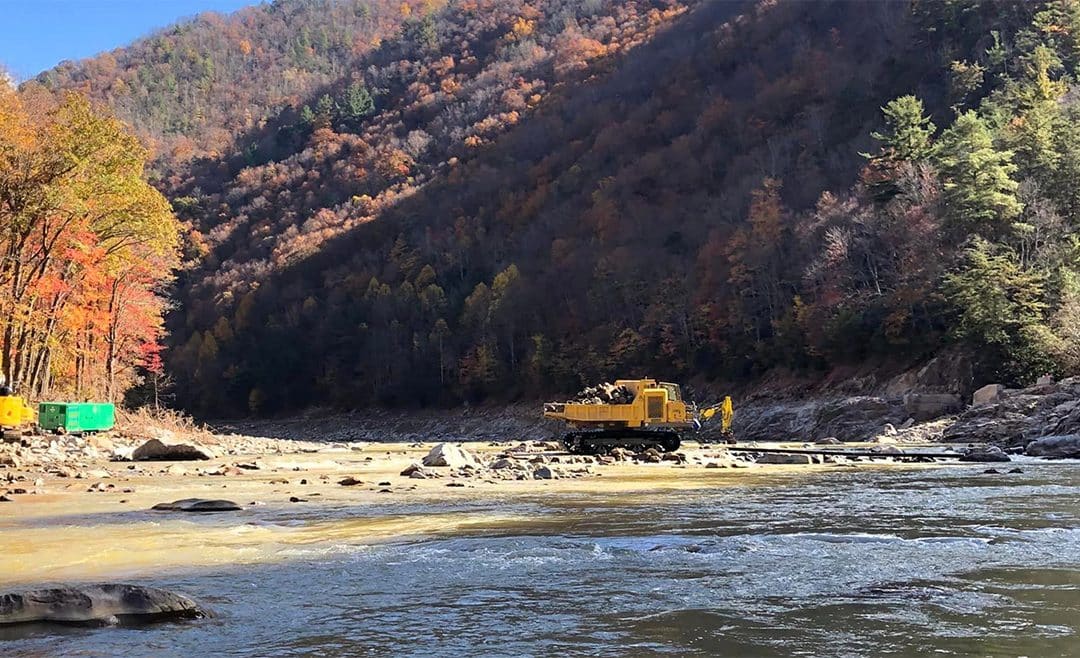
Resilient Forests E-News: May ’25
Resilient Forests E-News: May ’25
Events Roundup

We had an incredible small group of volunteers join us this month for our annual wildflower walk and garlic mustard pull! Four volunteers worked with Resilient Forests Director Josh Kelly to pull 89 pounds of invasive garlic mustard, then hiked two miles back to the parking area with their very full trash bags. Thank you to these amazing volunteers!
Get Involved
Ongoing: Sign up to document landslides on public lands in Western NC. We have already had over 50 people sign up – thank you! Check out our documentation progress here. Having trouble using the app? Fill out this form.
Wednesday, May 28th: Join us TOMORROW for Conservation Conversations in Asheville! We’ll be at RAD Brewing from 5:30-7pm, hearing from organizations working to recover the places we love following Helene. MountainTrue will be joined by Asheville Greenworks, Hemlock Restoration Initiative, and Carolina Mountain Club. RSVP here!
Friday, May 30th: Join MountainTrue and Carolina Mountain Club for a day of trail maintenance near Asheville! The work location will be decided closer to the date, and we’ll communicate that to you the week of the workday. Sign up here!
Saturday, June 21st: Come on out for MountainTrue’s annual BioBlitz! Help MountainTrue document biodiversity at Hickory Nut Gap Farm near Asheville. Volunteer with us in the afternoon, then celebrate a job well done at the evening barn dance! Sign up here!
Federal Policy Updates Affecting Public Lands & Forests
House passes budget bill including “pay to pollute” provisions, removes public lands transfers: The House passed a megabill late on 5/21, advancing it to the Senate. While a previous version of the bill included language allowing for sales of public lands to states, this language was removed from the version that passed. Another provision in the bill allows companies to pay a fee to expedite environmental permitting processes for projects, essentially a “pay to pollute” scheme. The bill still includes major funding cuts for the National Park Service.
Trump Administration proposes eliminating habitat protections in Endangered Species Act: A proposed rule threatens to substantially weaken the Endangered Species Act by eliminating habitat protections for threatened and endangered species. The rule seeks to rescind the regulatory definition of “harm” under the ESA, which currently prevents habitat destruction for endangered species. Stripping the definition of harm to leave out habitat destruction would open the floodgates to developers, loggers, miners, oil and gas drillers, and others to destroy endangered species habitat, driving species to extinction in the process.
Contact Your Legislators
Please consider reaching out to your legislators and urging them to (1) remove NPS funding reductions and NEPA changes from the “big, beautiful bill,” and (2) oppose changes to the ESA. Follow this link to submit a letter to your Senators and Representative. Your home address will determine which elected officials your message is sent to.







